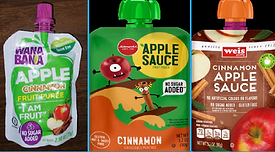Management
A Future View of AI-Enhanced Biosurveillance and Comprehensive Food Safety Programs
A future-oriented perspective on comprehensive food safety programs that harness multi-layered sensor technology and artificial intelligence
December 12, 2023
Never miss the latest news and trends driving the food safety industry
eNewsletter | Website | eMagazine
JOIN TODAY!Copyright ©2024. All Rights Reserved BNP Media.
Design, CMS, Hosting & Web Development :: ePublishing









